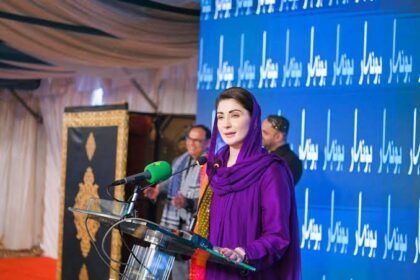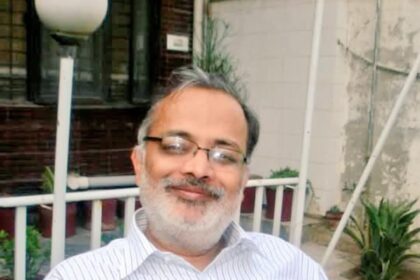The complete eradication of poliovirus has turned into an epic challenge for Pakistan. In its pursuit to eradicate this crippling disease, dedicated campaigns are launched across the country with the help of UNICEF, the World Health Organization (WHO), the Bill and Melinda Gates Foundation and other groups under the government administration. On September 8, 2024, another special anti-polio drive has officially been launched by Prime Minister Shehbaz Sharif to ensure complete eradication of poliovirus. The latest campaign will cover 115 districts and about 30 million children under the age of five will be administered polio drops from September 9 to 15, 2024. It is alarming to note that the presence of poliovirus has been reported in 20 districts of Balochistan. Poliomyelitis is a severe paralytic illness that predominantly impacts children younger than five years old. This condition is caused by the poliovirus (PV), a single-stranded positive-sense RNA virus that exists in three distinct serotypes: type 1, type 2, and type 3. Since the inception of the global polio eradication initiative by the World Health Organization in 1988, there has been a remarkable 99.9% reduction in polio cases worldwide. Over the last 33 years, approximately three billion children have received vaccinations through this initiative. As of 2024, Pakistan is one of the two nations where polio continues to be endemic. The false reporting of administering vaccinations continues to be a major obstacle leading to recurring cases of polio in infected children. It is imperative to investigate the corrupt officials who prioritize their own financial gain over the success of anti-polio campaigns, largely funded by foreign sources. As a result of their greed, polio cases are being reported in districts where the presence of the virus was once unimaginable. In order to meet campaign targets, children are being inaccurately marked as vaccinated.
Countless challenges persist in realizing the long-awaited goal of eradicating polio. The journey towards a polio-free Pakistan is undeniably long and fraught with challenges. The lack of vaccination centers, alongside conservative attitudes, parental refusal, and migration, has hindered the complete eradication of the disease. A propaganda opposed the polio immunization program, leading to the suspension of efforts and some physical attacks on health workers. As a result, the battle against the disease faced significant setbacks in Khyber Pakhtunkhwa and Balochistan. Despite this, Pakistan has seen a decline in polio cases due to previous immunization campaigns and improved security for workers. The concerted efforts of global organizations, and others have begun to yield results. However, the challenge persists, and more work is necessary to eliminate the polio virus. With Nigeria declaring itself polio-free, the focus remains on Pakistan and Afghanistan as the last two countries on the polio-endemic list. In recent years, Pakistan has made significant progress in reducing the incidence of polio due to successful immunization campaigns and improved security measures for polio workers and health visitors. Nonetheless, effectively eradicating the disease remains a formidable challenge, and more extensive action is necessary to eliminate the poliovirus. The ongoing threat posed by some extremists opposing polio vaccinations remains a significant concern. Both health workers and law enforcement personnel have lost their lives in the line of duty. While the government’s dedication to eradicating polio is commendable, the mere initiation of vaccination campaigns without a comprehensive security strategy is inadequate. Why were the police officers accompanying the polio workers seemingly so lax in their duties? If they cannot even safeguard themselves, who will protect them? How were assailants able to inflict further casualties while escaping?
It is imperative to take proactive measures against such malevolent forces. These despicable actions pose a significant obstacle to Pakistan’s ambition to become a polio-free nation. Substantial investment in advanced training for the police is essential, especially considering increasingly perilous environment where both the polio workers and law enforcement officers are being targeted. However, these cowardly acts should not diminish the government’s determination to eliminate this debilitating disease and secure the children’s future. The relevant authorities must develop and implement a comprehensive security plan before every anti-polio campaign, particularly in high-risk areas. The propaganda against the polio vaccine is preventing some parents from vaccinating their children, as it spreads the false belief that the vaccine is part of a western conspiracy and will make vaccinated individuals infertile. This narrative has gained traction due to the lack of a strong counter-message about the life-saving benefits of the polio vaccine. Pakistan is one of the two remaining countries where new polio cases still emerge, making it crucial for the government and communities to unite in the fight against polio. It is imperative for Pakistan to address this issue head-on and dispel the misconceptions concerning the polio vaccine. The government must utilize various platforms, including media campaigns and community-based initiatives, to educate people in tribal areas about the importance of polio vaccination. It is vital to emphasize that polio drops safeguard children from paralysis and are not linked to infertility. While the government’s commitment to vaccination efforts is commendable, it is equally important to raise awareness about polio and strengthen surveillance systems, improve routine immunization, and ensure high-quality vaccination campaigns. Therefore, we urge all levels of the government to remain vigilant and proactive in combating this debilitating disease by enhancing vaccine coverage and immunizing children in their respective areas.






